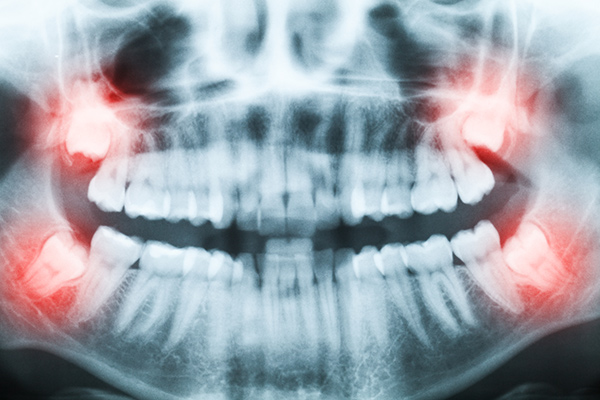Straightening your smile is all about getting your teeth into their ideal position. But what about wisdom teeth, that so frequently grow in positions that require them to be removed? It’s common for parents and teens to worry about how wisdom teeth may affect their braces. Fortunately, the myths surrounding wisdom teeth with braces are far from reality, and you shouldn’t have to worry!
Read on to learn more about wisdom teeth, what makes them necessary to remove, and how wisdom teeth interact with your braces.
What Are Wisdom Teeth?
As you age, your primary teeth are lost and your permanent, adult teeth erupt into place. This process doesn’t happen overnight, leading to teeth taking their place over several months and years. Wisdom teeth are the final set of teeth that erupt in your mouth, four molars that form in the very back.
Wisdom teeth erupt both on the top and bottom, and generally speaking, are just like any other molars in your mouth. However, in many cases, wisdom teeth can become impacted, which means they aren’t able to fully erupt through the gum in the correct position. While this can happen with any tooth, it’s more likely to happen with your wisdom teeth due to the positioning and timing that they appear.
Impacted teeth are a problem because they can cause discomfort or pain, they can increase your susceptibility to bacteria and decay, and they can lead to infection. For this reason, many dentists recommend to have wisdom teeth removed if they start to show signs of becoming a problem.
Dispelling the Myth that Wisdom Teeth Disrupt Orthodontic Treatment
A common worry of having wisdom teeth with braces is that the pressure of erupting wisdom teeth will push nearby teeth out of alignment and affect your overall orthodontic progress. Fortunately, this isn’t the case! Despite how frequently it’s mentioned, research has shown that wisdom teeth simply don’t have the pressure or force necessary to push other teeth out of position.
Additionally, orthodontic treatment is generally focused on the front half of your mouth, as these teeth are the most vulnerable to displacement. So not only is a wisdom tooth unlikely to cause problems directly, those teeth that it erupts nearby aren’t a concern in the first place for most people!
That’s not to say that wisdom teeth can’t pose a problem for some cases. Depending on your specific treatment needs, your wisdom teeth may be something your orthodontist and dentist keep a close eye on. Due to cutting-edge imaging and technology, we can typically stay ahead of these potential issues to solve them before they have any effect on your teeth straightening!
What Makes a Wisdom Tooth Worth Removing?
Signs of Infection – The major risk of impacted wisdom teeth is the potential to develop an infection or abscess. An oral infection can have severe consequences, especially if not caught early, which is another reason why it’s so important to stay current on your dental checkups!
Inflammation – Constant inflammation is a primary symptom of gum disease issues, which can lead to lasting effects like permanently losing a tooth. If your impacted wisdom teeth are contributing to inflammation issues, it’s a good reason to have them removed.
Pain & Discomfort – Problematic wisdom teeth can lead to a generalized discomfort in your mouth, which can gradually rise into a crippling pain.
Potential Damage to Your Teeth – While wisdom teeth aren’t likely to push your teeth out of place, constant pressure against a nearby molar due to an impacted wisdom tooth does increase the chances of cracking the tooth.
What Should I Do About My Wisdom Teeth?
If you’re worried about wisdom teeth and braces, you may be looking for the straight-forward answer: do you have them removed or not? Modern humans don’t have a need for wisdom teeth like our ancestors may have, so there’s no reason you should be worried about having them removed.
However, it is a dental surgery, which means it can be an involved process with some residual pain or discomfort. In particular, the lower wisdom teeth are much more challenging to remove, with risks of damage to nerves in your mouth.
For this reason, most dentists and orthodontists will recommend that you wait and see how they develop and, if they see an oncoming issue, then they can take the necessary steps towards removal.
Schedule a Free Consultation
Do you have questions about Invisalign or orthodontic treatment? We can answer your questions to keep your teeth and gums healthy – schedule a free consultation! Contact us online or call 440-842-8015
Stay connected with Doctor Andy on Social Media!





